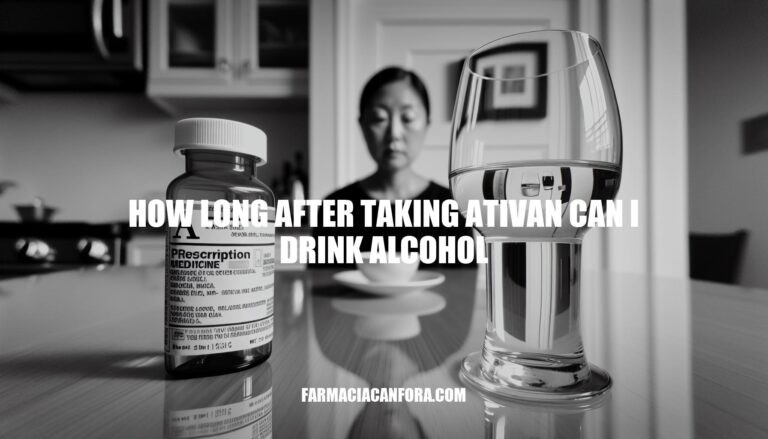


Combining Ativan (lorazepam) with alcohol can be dangerous due to their compounded effects on the central nervous system. Both substances can cause drowsiness, dizziness, and slowed breathing, which can be life-threatening when combined. It’s crucial to understand that Ativan can stay in your system for several days, and it’s generally recommended to wait at least three days after your last dose before consuming alcohol. This precaution helps prevent severe side effects and ensures your safety.
Ativan, also known as lorazepam, is a benzodiazepine and a central nervous system (CNS) depressant. It is primarily used to treat anxiety disorders, insomnia, and seizures.
Ativan works by enhancing the effects of a neurotransmitter called gamma-aminobutyric acid (GABA) in the brain. This action helps to slow down brain activity, leading to a calming effect on the body.
Mixing Ativan (lorazepam) with alcohol can lead to severe and potentially life-threatening side effects:
It’s crucial to avoid alcohol while taking Ativan to prevent these serious health risks.
Ativan (lorazepam) has a half-life of approximately 10 to 20 hours. This means that it takes about 10 to 20 hours for the concentration of the drug in the body to reduce by half.
Given this half-life, Ativan can stay in the body for several days. Typically, it takes about 5 half-lives for a drug to be eliminated from the body. Therefore, Ativan can remain in the system for up to 100 hours (around 4 days) after the last dose. This duration can vary based on factors like metabolism, age, health condition, and dosage.
You should wait at least 3 to 5 days after taking Ativan before drinking alcohol to ensure the drug is fully cleared from your system.
It’s crucial to wait at least 3 to 5 days after taking Ativan before drinking alcohol to ensure the drug is fully cleared from your system. This precaution helps prevent severe side effects and ensures your safety.
Mixing Ativan with alcohol can lead to life-threatening consequences, including:
Always follow medical advice to avoid these serious health risks.